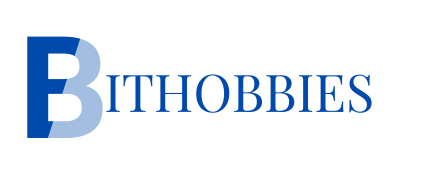Understanding the regulations and limitations of various banking transactions is essential these days. One such crucial aspect is the cash deposit limit in savings accounts. This guide will help you understand the intricacies of cash deposit limits, explaining why they exist, how they work, and what you need to know to manage your savings account effectively.
What Does Cash Deposit Limit Mean?
A cash deposit limit in a bank sets the maximum amount of money you can deposit into your savings account within a specific period before the bank has to report the transaction or conduct further checks. Banks and financial institutions impose cash deposit limits to ensure compliance with regulatory requirements and to prevent money laundering and other illegal activities. These limits help in monitoring large transactions that could indicate suspicious activities. Additionally, they streamline the bank’s operations and efficiently manage the influx of physical cash.
What Are the Typical Cash Deposit Limits?
The cash deposit limit in savings accounts can vary significantly from one bank to another. Generally, banks set a daily or monthly limit on how much cash you can deposit into your savings account. For instance, banks like Kotak Bank allow a daily cash deposit limit of Rs.1 lakh, while others may have higher or lower thresholds.
Types of Transactions that Count Towards the Limit
Aside from the cash deposit limit in savings accounts, other cash transaction rules should also be considered:
- Cash Withdrawals: Banks usually set daily limits on how much cash you can withdraw from ATMs. These limits depend on the bank and your account type. They help control cash flow, improve security, and prevent ATM misuse.
- Bank Branch Transactions: Some banks may charge fees if you make too many cash transactions at their branches or exceed a certain amount in a month.
- Cash Deposit Machines (CDMs): Banks often have limits on how much cash you can deposit through CDMs. These limits can vary by bank and location, affecting the convenience of using these machines for large deposits.
Factors Influencing Cash Deposit Limits
Account Type
The type of savings account you hold can influence the cash deposit limit. Premium accounts or accounts held by high-net-worth individuals often have higher cash deposit limits than regular savings accounts.
Customer Profile
Your relationship with the bank, including your previous customer status and account activity, can also affect the cash deposit limit. Banks may offer higher limits to long-standing customers with a history of significant transactions.
Branch Location
The location of the bank branch can impact the cash deposit limit. Urban branches typically have higher limits than rural branches due to the higher volume of transactions in metropolitan areas.
What Happens When You Exceed The Cash Deposit Limits?
Penalties and Charges
Exceeding the cash deposit limit in your savings account can result in penalties and additional charges. Banks often levy fees for deposits that go beyond the stipulated limit. These charges can add up quickly, eating into your savings.
Increased Scrutiny
Depositing amounts that exceed the cash deposit limit can draw increased scrutiny from the bank and regulatory authorities. Large or frequent deposits trigger a review of your account activity to ensure compliance with anti-money laundering laws.
How To Manage Cash Deposits Effectively?
Below, we will understand the best ways to manage your cash deposits so that they don’t exceed the limit:
Plan Your Deposits
Plan your deposits strategically to avoid surpassing the cash deposit limit in savings accounts. If you anticipate a large deposit, consider splitting it over several days or months, depending on the bank’s regulations.
Use Multiple Accounts
If you frequently deal with large amounts of cash, it might be beneficial to maintain multiple savings accounts. This approach can help you distribute your deposits across different accounts, ensuring that you stay within each account’s limit.
Utilize Digital Transactions
Whenever possible, opt for digital transactions over cash deposits. Online transfers, mobile banking, and a bank cheque are safer and more convenient methods of depositing money into your savings account. These methods are not subject to cash deposit limits and offer enhanced security and ease of transaction.
Conclusion
Understanding the cash deposit limit in savings accounts is crucial for effective financial management. By being aware of these limits and planning your transactions accordingly, you can avoid unnecessary penalties and ensure that your banking activities comply with regulatory standards. Stay informed about your bank’s policies and leverage digital transactions and bank cheques to manage your finances smoothly.








1 thought on “What Is the Cash Deposit Limit in Savings Accounts”